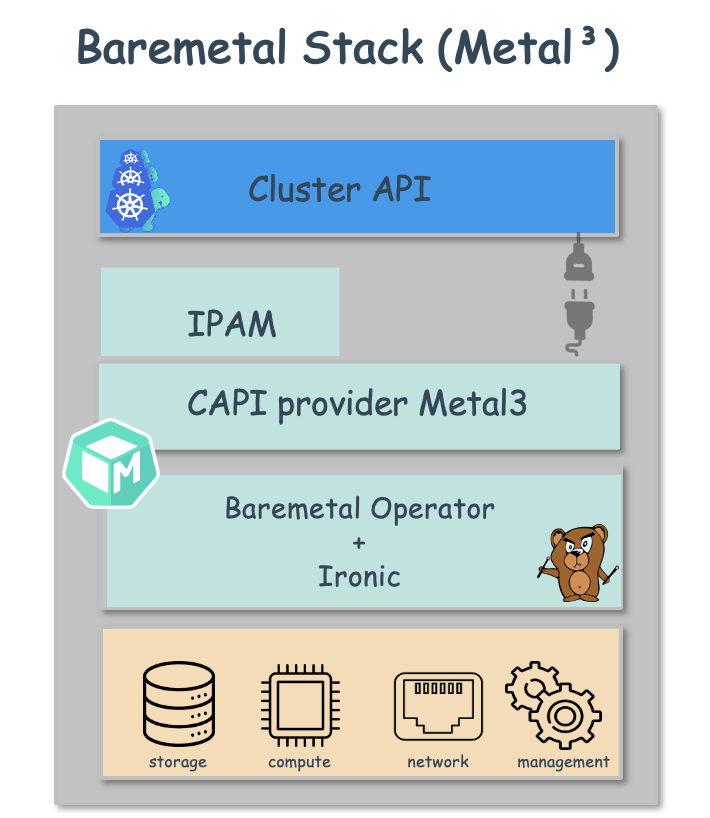CNCF Elevates Platform for Managing Bare Metal Servers Running Kubernetes
The CNCF Technical Oversight Committee (TOC) has elevated a Metal3.io framework for automating the management of bare-metal IT infrastructure running Kubernetes to become an incubation-level project.
Originally developed by Red Hat, the Metal3.io project provides IT teams with a set of open source components for managing bare metal hosts running Kubernetes. There are now 57 active contributing organizations, now led by Red Hat and Ericsson, that are actively developing the Metal3.io framework that makes it possible to enroll bare metal machines, provision operating system images, and deploy Kubernetes clusters. Additionally, Metal3.io can also be used to update Kubernetes environments as needed.
Underneath Metal3.io is Ironic, an open source framework for invoking the baseboard management controllers associated with different types of bare-metal servers. Specific components of the framework include a Baremetal Operator (BMO) that exposes parts of the Ironic application programming interface (API) as a Kubernetes native API, a Cluster API Provider Metal³ (CAPM3) that provides integration with the Cluster API for Kubernetes, an IP Address Manager (IPAM) and am Ironic Standalone Operator to deploy Ironic on Kubernetes using an Ironic container image.
Kashif Khan, a maintainer of Metal3.io and open source architect for Ericsson, said that as more stateful applications are deployed on bare metal servers, there is a clear need for an approach to automating the underlying infrastructure using a framework that natively invokes the Cluster API, which was also developed for Kubernetes by the members of the Metal3.io project.
The contributors to the Metal3.io project also developed an Operator for the Metal.io framework that will eliminate the need to rely on shell-based deployment tools, in addition to adding capabilities such as an ability to regularly scan dependencies, a vulnerability disclosure process, and automated dependency updates.
It’s not clear how many Kubernetes clusters are deployed directly on bare-metal servers, but the number running on a virtual machine is far greater. Many IT teams have historically defaulted to virtual machines because of the need to isolate workloads and the simple fact that they already have tools to manage them. However, there are more instances of cloud-native workloads, including now artificial intelligence (AI) applications, that are the only applications running on the cluster. Running those applications on a bare-metal server eliminates the overhead created by virtual machines, noted Khan.
Originally contributed to the CNCF in 2022, the amount of time that will be required for the project to move to the next graduation phase should be substantially shorter, noted Khan. In addition to there being 186 contributors to the project, it has also already garnered 1,523 GitHub stars.
It’s not clear to what degree AI might one day be applied to the management of Kubernetes clusters, but as the number of them continues to expand, the need to automate the management of these platforms is becoming a more pressing issue. In the short term, at least, frameworks such as Metal3.io that might one day be invoked by AI agents are, fortunately, becoming more robust at a time when modern IT environments are becoming too complex for IT teams to manually manage on their own.



